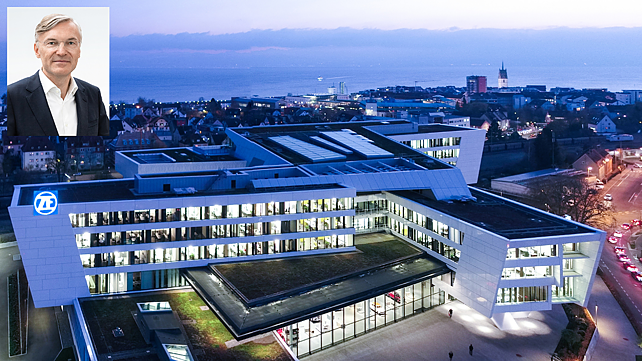
Technology Group ZF has announced that it achieved its financial targets last year despite a challenging business environment, reporting sales of €38.3 billion, registering 17.5% over the 2020 figure of €32.6 billion, and above that of 2019 (€36.5 billion).
Speaking today at the presentation of the Group’s financials, Wolf-Henning Scheider, CEO, ZF, said, “Despite the arrival of strong headwinds during the course of the year, we have remained firmly on course and achieved the targets we set at the start of the year. With their dedication, determination and team spirit, our workforce has played a decisive role in successfully tackling the challenges of these extraordinary times. We have adapted to the new normal and have become even more agile, flexible and digital.”
The second half, in particular, demanded exceptionally high levels of flexibility in production and materials management as a result of interruptions in the global supply chain and last-minute changes in customer orders. All of this took place against the ongoing backdrop of the global pandemic, he said.
Dr Konstantin Sauer, CFO, ZF, said, “In a volatile environment marked by profit warnings and revised forecasts, we successfully achieved our targets in the middle of our forecast range. This means we were able not only to make substantial investments but also to reduce our financial liabilities and strengthen our equity ratio.
Gross debt was reduced by €752 million to €12.5 billion. At the end of 2021, the equity ratio stood at around 19% against 12.1% the previous year.
ZF further increased its activities in research and development (R&D). Last year, the R&D ratio was 8% against 7.7% in 2020, equating to R&D spending of €3.1 billion compared to €2.5 billion in 2020, which is the highest ever in ZF history, according to the company. Investments in property, plant and equipment were €1.6 billion (€1.4 billion in 2020), resulting in an investment ratio of 4.2% against 4.4% in the previous year.
2022 Remains A Challenge
Following the positive market development in 2021, the business conditions remain highly challenging and volatile. Even though the semiconductor supply is expected to improve in the second half of 2022, the ongoing COVID-19 pandemic, general supply bottlenecks, and rising inflation make an outlook for the current year more difficult. The war in Ukraine and its negative global impact exacerbates this situation. The disruption of supply chains of both passenger car and commercial vehicle manufacturers has already caused the first production halts. Although ZF is not currently affected significantly by war-related supply chain issues today, downtime at our customers has led to fewer call-offs at ZF. The extent to which a possible further escalation of the war in Ukraine will affect the global economy and industry growth in the fiscal year 2022 cannot currently be estimated, the statement said.
For these reasons, our outlook explicitly comes with a caveat; ZF anticipates moderate growth in group sales to a volume of more than €40 billion in 2022. This sales growth is expected to result in an adjusted EBIT margin of between 4.5 and 5.5%. Adjusted free cash flow is likely to be between €1.0 billion and €1.5 billion, the statement noted.

Scheider To Leave ZF
At its last meeting, Scheider informed the Supervisory Board that he did not wish to extend his contract, which expires in January 2023. After more than three decades in the automotive industry and reaching the age of 60, he had decided to end his active time in the industry at the end of the year to pursue other challenges.